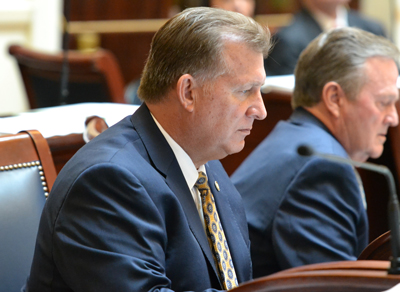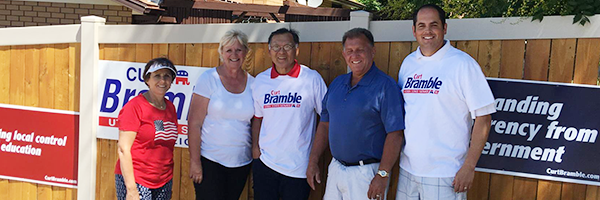
Our legislature is part-time and the bulk of our efforts is in session during the last week of January to the middle of March. There are interim days every few months where we meet and are updated and in some cases, if the Governor calls a special session, we take legislative action.
Here is the report from our interim day.
Approval of Appointments
Part of the Senate’s Constitutional responsibilities are to approve appointments by the Governor (Article VII Section 10) to different boards, commissions, and judicial bodies. This past interim, we confirmed two judges to the Appeals Court, the judicial body directly below the Supreme Court, and 1 judge to the 3rd District Court (Read more here). We also confirmed appointees for three commissions. You can view the complete list here: http://senatesite.com/utahsenate/june-senate-confirmations/
Competency Based Education
The Education Committee continued its discussion of competency based education. Competency based education is an approach to education that allows students to master an educational component before moving on to more advanced material. The curriculum and schedule are built to accommodate the student’s pace of learning. Senator Millner proposed forming a working group to identify barriers to competency based education and to find Which body is most appropriate to deal with the barriers. For instance, if it’s a problem of funding, the Legislature would be the best body to address the barrier.
To hear the audio, click here.
Minimum Vehicle Insurance Premium Limits
The Business and Labor Committee took a look at vehicle minimum coverage limits, and trends in premium costs. Like Health Insurance premiums, vehicle insurance premiums have increased substantially in the past decade. During this time, Health care costs have increased but vehicle coverage limits have not necessarily kept pace with the surge in health care related expenses. When the health care costs of an accident exceed the coverage of the premium, the hospitals will bill the individual for the excess costs.
Currently, the state’s minimum coverage is $25,000 per person and $65,000 per accident but we haven’t changed the minimum limits in a long time. Nationwide, Utah appears to have some of the highest coverage limits. Only two states have higher per occurrence limits, Alaska and Maine. This may be an issue that receives more attention in the coming months.
Catch the audio here.
The Education Committee takes a hard look at the Teacher Shortage
The state is facing a teacher shortage. In the past five years, enrollments in teacher preparation programs have decreased, graduates from teacher programs have decreased, and the existing workforce–whose average age is 42–is aging. Over 48% of school districts in a survey of 31 districts reported not having a certified teacher for every class, and nearly all (90%) acknowledged that the pool of applicants is shrinking. At the same time, the state is also experiencing difficulty retaining new teachers. In the class of 2011, 40% of the teachers that started in the profession are no longer teaching this year. A significant number of teachers in this state will leave the profession within their first year. Our student population, meanwhile, has increased and will continue to increase as the population of the state grows, which may further compound the teacher shortage.
What is causing this? There are numerous causes. Surveys and research suggest that a lack of professional development and support, low pay, working conditions, and attitudes towards teachers are among the leading factors. The unique demographics of our state may also play a role. For instance, many of our teachers will eave the profession to focus on their families.
The state has made efforts in recent years to bolster support for teacher development. In this past session, Senator Millner sponsored SB51 which established the position of “teacher leaders” to serve as mentors that can provide guidance to newer teachers. The Education Committee will consider other options as the year progresses.
To see the reports and listen to the committee discussion, click here.
How bad is Utah’s Doctor Shortage?
The Utah Medical Education Council presented the results of their recent research into the accessibility of health care to the Health and Human Services Committee. Across the state, there is a growing demand and shrinking supply of primary care physicians. In comparison with other states, we have one of the lowest primary care physicians to population ratios in the nation. In fact, only Mississippi has a lower per-capita rate. Average wait times have increased new patient from 12.6 days in 2010 to 15.3 average days in 2016. Similarly, according to the Utah Department of Health, every county in the state of Utah is an underserved area for primary medical care, primary mental healthcare, and dentistry. These shortages may be especially pronounced in rural communities.
One of the key factors contributing to the shortage of primary care workers is the fact that primary care physicians do not make as much as specialists, a compelling consideration for doctors given the increasing costs of medical training. Research shows that doctors are most likely to practice in the area where they complete their residency. Consequently, increasing the number of admitted students to a medical program does not necessarily lead to more doctors in the state.
Loan repayment programs may be one of the solutions. We do have federal programs and some state programs medical graduates can utilize. For example, at the state level, we have a Healthcare Workforce Financial Assistance program that provides loan repayment and scholarship options for healthcare professionals. Learn more about this program here.
To listen to the full committee meeting, click here.
Solid Waste Environmental Issues
This past session the Legislature passed HB 258, Solid Waste Amendments, but the governor vetoed the bill after the EPA noted that it would render the state’s program less stringent than federal standards. The Administrative Rules Review Committee, discussed the definition of solid waste as specified in HB 258 versus and the EPAs letters about the issue. There will need to be some negotiating on both sides to get the language right before the bill can be considered again.Listen to the meeting here to learn more about Solid Waste Amendments.
Economic Development Incentives
The Economic Development and Workforce Services Interim Committee discussed state economic development incentives. Ryan Hunter, with the Office of Legislative Research and General Counsel, presented numbers from a 2012 New York Times study. This study placed Utah in the lowest quarter of the nation in terms of dollars spent. Only Nevada was lower than Utah among western states. An important point discussed by the committee was the total dollars spent compared to the economic benefits to the state. In other words, are the dollars spent bringing in jobs and other economic benefits? Nationwide, the benefit of such incentives has been studied to determine economic value. Do incentives bring in new businesses and does it increase employment?
The opinions are mixed. One study indicated that available transportation and low labor costs had as much effect on new businesses as incentives. More than one study found that economic development incentives were successful around ten percent of the time. The conclusion is that incentives may work if targeted effectively but that incentives for entrepreneurial strategies focused on new technology and new business may be as effective as luring existing businesses to relocate or expand to Utah communities.
To listen to the committee meeting, click here.
Recent Changes to Unmanned Aerial Vehicles Regulations
Kim Gibb with the Department of Public Safety reported to the Government Operations Interim Committee on the state’s use of Unmanned Aerial Vehicles (UAV), or drones. The Department of Public Safety owns 2 UAVs that are used by the Utah Highway Patrol, and the Department of Emergency Management. Last year, the department was informed by the FAA that the UAVs can’t legally be operated without an FAA Certificate of Authorization unless they are operated under hobbyist guidelines, which limit the UAVs to flights below 400 feet. Applications for a Certificate of Authorization are currently being processed.
In compliance with Utah Code 63G-18-105, Ms. Gibb gave a report of all Department of Public Safety UAV flight operations from the previous calendar year. The department deployed UAVs four times including two flights for media requests and two for Search and Rescue operations. So far, the Department of Public Safety is the only law enforcement agency that has complied with this reporting requirement. Representative Perry questioned the need for such reports, pointing out that using a UAV for criminal investigations requires a warrant, so a record of those activities already exists. He said that it seems pointless to require statewide reporting and that this section of the law may need to be repealed.
The listen to the committee meeting, click here.
Crime Victim Reparation and Assistance Board Renewal
The Crime Victim Reparation and Assistance Board will pay close to $8 million in reparations to crime victims this year. This money does not come from taxes, but rather a surcharge for misdemeanors and felonies. The money is used to cover crime related expenses that would otherwise come out of the victim’s pocket. This board is currently up for a sunset review as it is set to expire next July unless legislative action is taken to continue the program. The purpose of the sunset review is to eliminate any needless programs and to improve existing programs.
To learn more about this board and hear suggestions on how it can improve, listen to the meeting here.
Death Penalty
The Law Enforcement and Criminal Justice Interim Committee discussed the costs associated with capital punishment and how it compares to the cost of Life Without Parole Inmates in Utah. Gary Syphus, with the Legislative Fiscal Analyst’s Office, presented an estimate of costs associated with capital punishment that are above and beyond the costs of Life Without Parole Inmates. The estimated cost associated with death row inmates was approximately $1.66m. Senator Weiler asked if most of those costs were legal services provided by government and whether or not those cost would go away if the death penalty did. In other words, would the Attorney General’s office layoff attorneys if the death penalty were repealed in Utah? Mr. Syphus said that it was difficult to make that determination. Assistant Attorney General Andrew Peterson, told the committee that he and a few other attorneys handle appeals for the state but that none of them were devoted solely to death penalty cases. Later in the meeting, Senator Weiler pointed out that the estimated average annual cost of housing a prisoner is $27,000, but that other states have estimated the cost of housing geriatric prisoners at closer to $55,000 annually. In summarizing his point, he mentioned that those lobbying legislators this last session used cost as a reason to repeal the death penalty. He stated that there is not a clear cost savings for repealing the death penalty.
To listen to the committee meeting, click here.
Congressman Rob Bishop Discusses Bears Ears
Utah Congressman Rob Bishop has worked for roughly three years on a Public Lands Initiative and according to a representative from his office, the bill should finally be available for review at the end of the summer. Many of our state legislators on the Natural Resources, Agriculture, and Environment Committee, inquired as to whether all groups in Utah were invited to come to the table during discussions while creating this initiative and if there is opposition within the state to his bill. According to Bishop’s staff, nearly all Native American groups that reside in Utah are in favor of the Public Lands Initiative and have been invited to participate in the discussions.
To learn more about the Public Lands Initiative, listen to the committee meeting here.
Limited Purpose Local Government Entities
The Political Subdivisions Interim Committee discussed the purpose of limited purpose local government entities. These entities are authorized by state law to provide a limited number of designated functions with sufficient autonomy to qualify as separate governments. Entities that fall under the committee’s jurisdiction include: Local Districts, Special Service Districts, Assessment Areas, Community Reinvestment Agencies, Interlocal Entities, Conservation Districts, and Local Building Authorities. These entities are able to supplement services provided by many general purpose governments, but can be challenged by issues with accountability, transparency, and fragmented service provision.
To learn more about limited purpose local government entities, click here to listen to the committee meeting.
Public Utilities, Energy, and Technology
Utah’s Universal Service Fund was established by the legislature in 1997 as a way of providing phone service to those who live in high cost areas for phone operation. The fund is supplied by surcharges on land and wireless intra-state phone usage. Traditionally, the incoming funds have always largely exceeded the expenses incurred with providing the service, until this year. Starting at the beginning of this year the incoming funds have dropped while simultaneously operating expenses have increased. The legislature will evaluate why the service focuses on landlines when cell phones are cheaper and if changes to statute are necessary.
Catch more on the Universal Service Fund dilemma here.
Legislative management Committee Reviews Homeless Shelter Programs
This past session, HB 436, Housing and Homeless Reform Initiative, established a Homeless Coordinating Committee that is tasked with reporting to the Legislative Management Committee on the use of the funds and developments. They reported that the Midvale shelter, previously only open in the winter, will be open year round for the next four years, as two new shelters are built in Salt Lake City. The two new sites in Salt Lake City have not yet been selected. There will be opportunities for public comment before the locations are finalized.
To hear more about the progress of our homeless shelters,listen to the meeting here.
Point of the Mountain Development Moves Forward
With the State Prison set to move out of Draper, a commission has been organized to study how to develop the land after the prison has relocated. The commission had three panelists report that this site is truly one of a kind in the United States with access to infrastructure, a large employment base, and a large plot of land. At the end of its studies, the commission is to report their findings back to the legislature as a whole. The meetings will be public and many will allow for public comment.
You can listen to the first meeting here.
Indigent Defense Commission is Established
The Senate Judiciary Confirmation Committee met on June 10th and June 17th to consider the Governor’s nominations to the Indigent Defense Commission. The purpose of the commission is to assist the state in meeting the state’s obligations for the provision of indigent criminal defense services, consistent with both the US and Utah Constitutions. Each of the governor’s appointees were briefly interviewed by the committee. Unanimous motions were passed to recommend for confirmation the following individuals by the Senate: Justice Michael D. Zimmerman, Ms. Mary Corporon, attorney, Ms. Nicole Cottle, General Counsel, West Valley City, Mr. Patrick Anderson, Director, Salt Lake Legal Defender Association, Mr. Ryan Loose, City Attorney, South Jordan, Mr. David Wilson, Chief Civil Deputy Attorney, Civil Division, Weber County, Senator Todd Weiler, attorney and Utah State Senator, Mr. Walter F. Bugden, Jr., attorney, Mr. Samuel Alba, former federal judge and attorney, and Ms. Claudia Jarrett, Sanpete County Commissioner.
To listen to the committee meetings, click here and here.
Budget Projections
The monthly revenue update indicated that for June our tax revenue range might be $100 million below to $85 million above the revenue projections for the General and Education funds. This is a range rather than a set number because tax collections for the month are not completed. It is anticipated to be most closely to $15 million below target projections. This does not mean we have a budget shortage; it is merely based off of projections for anticipated revenue.
To date, this fiscal year we have collected about $2 billion to the General Fund. While we have collected less than anticipated, we have still collected more than we did at this same time last year. Our economy is still growing steadily, just a little slower than projected. Knowing the accuracies of our projections is essential in helping us as a Legislature know how to appropriate funds every year.
To learn more about our monthly revenue update, catch the committee meeting here.
Legislators Tour Liquor Stores
A group of legislators had the opportunity to tour a liquor store and learn about their day-to-day functions and struggles. One notable issue, highlighted by a study conducted by the University of Utah, is the need for more liquor stores. This can be an alarming idea to many Utahns, but more stores do not necessarily entail an increase in sales and consumption. It is important to remember that the State is not in the business of promoting the sale or consumption of alcohol, but we are responsible for providing an efficient distribution business. Liquor stores are subject to local approval and can therefore not be forced upon an unwilling community.
To read more about my visit to the wine store, there is an article in Salt Lake Tribune and KSL.
State Fair Park
The State Fair Park is proposing to build a new multi-use, state-of-the-art stadium that would include 10,000 seats and would be available for events year round. The facility could host the rodeo, the Days of 47 Rodeo, the World Series of barrel racing, professional bull riding competitions, team roping events, concerts, community and cultural events, and sporting events. The estimated cost of this facility is $17 million. The board is asking for the State to appropriate funds for this project. They are also seeking out other private donors and have thus far received a $3 million commitment from the LDS church and commitments from Salt Lake City and count.
To learn more about the proposed facility, listen to the committee meeting here.
If there are any concerns or insights you would like to offer as we move forward on these policy issues, I’d love to hear from you. Please call, text, or send an email.
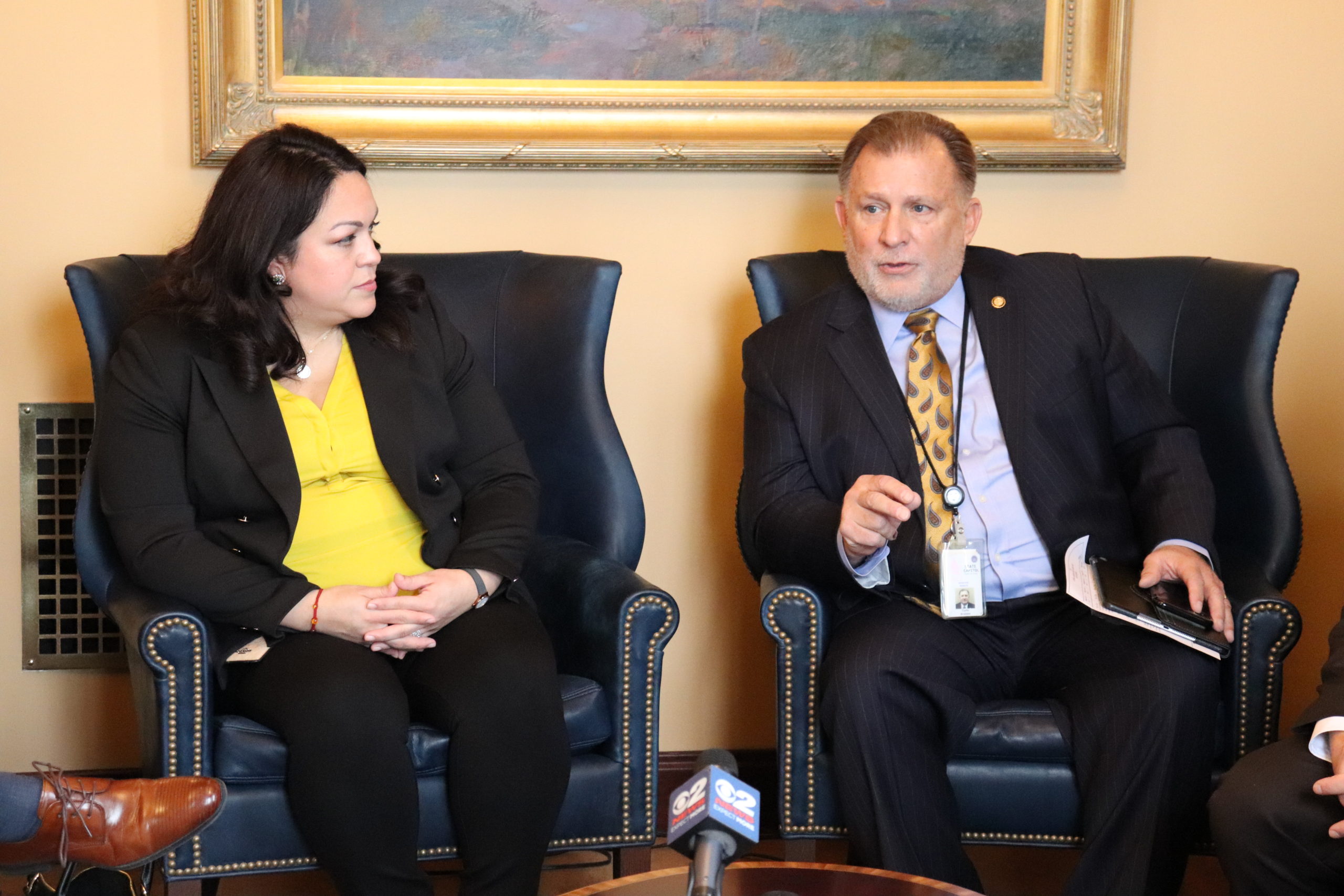
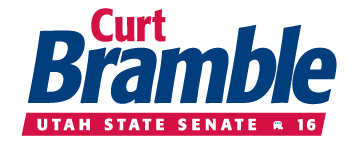





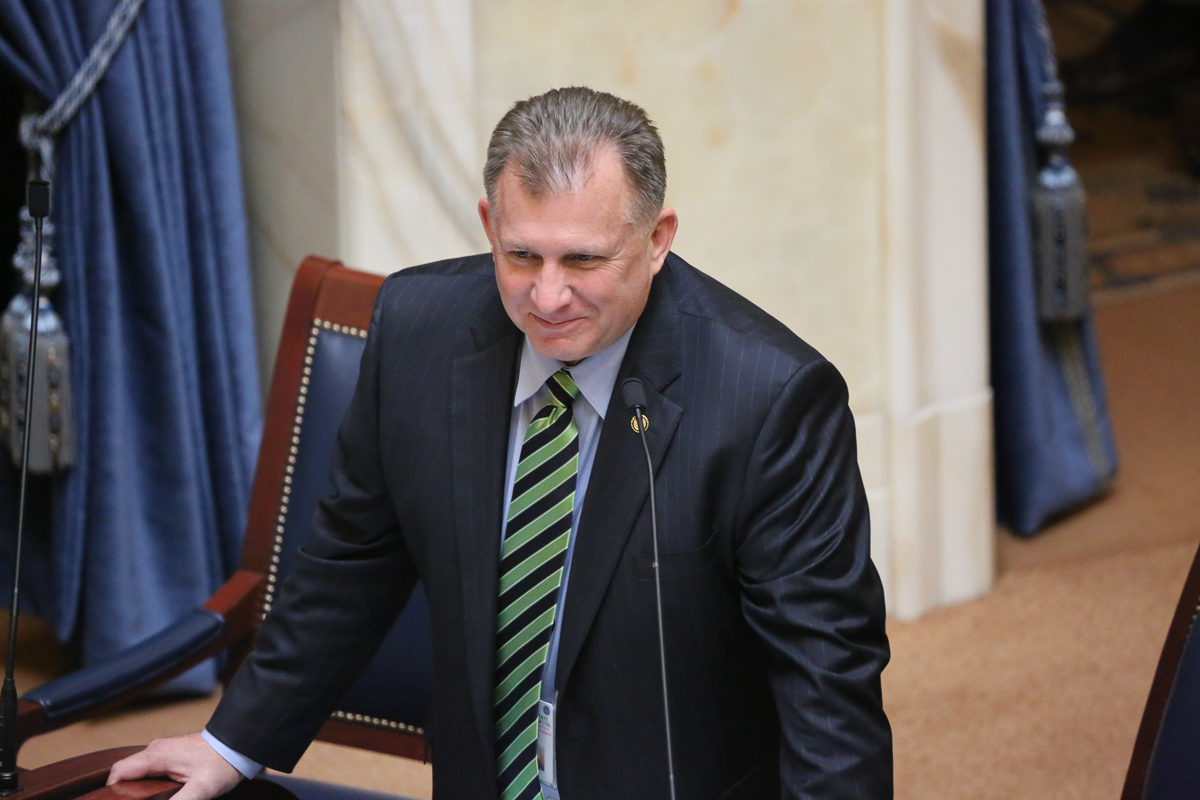




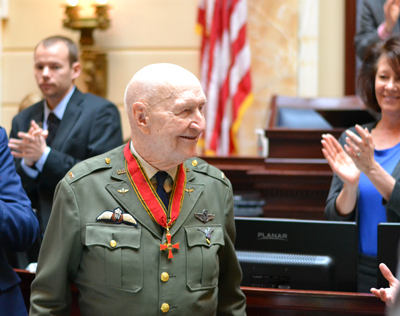
.jpg)



